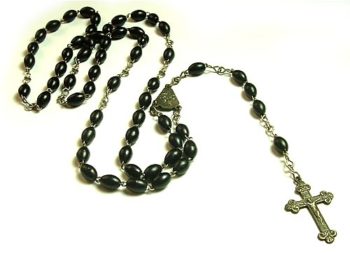That They May Be One
by Joel Brown, Kaio Community Member
 In March, Emmaus hosted a missions team from Franciscan University of Steubenville, a Catholic college in Ohio. After lunch one day, Abbey (one of the “Steubs”) and I ended up talking about the veneration of the saints.
In March, Emmaus hosted a missions team from Franciscan University of Steubenville, a Catholic college in Ohio. After lunch one day, Abbey (one of the “Steubs”) and I ended up talking about the veneration of the saints.
“I’m not sure if you know, but we don’t worship saints,” she said, anticipating a common Protestant misconception. She explained that when Catholics venerate the saints, they do so to honor—not worship—them, seeking out those who knew Christ with a special intimacy. As signposts of God’s grace, the saints guide believers in their walk of faith. We can ask them to intercede for us as we grow into deeper communion with our Lord.
It reminded me of something that my Jesuit spiritual director said last fall, just after my grandpa passed away. He asked me if I had an understanding of Christians who have passed away accompanying us in our sorrow, witnessing to the comfort Christ shared with them in their own journeys of grief. I’d never heard that idea before, but it struck me as truly comforting to remember the communion of believers who have walked the path of grief before, and walked it with Jesus.
Later on that week, Heather and I were talking with Mike, a Steubenville student who’d forgone the morning’s outing in order to clean up after breakfast.
“Do you want to pray the Office?” he offered. (The Divine Office is also known as the Liturgy of the Hours.)
We’d be glad to, we told him. As we prayed through the psalms and the collect of the day, we fumbled a bit. Mike had to let us know what to say, when to repeat certain phrases, and where to pause. Toward the end of the time, we started to get the hang of it, stumbling and mumbling a little less.
It struck me later that serving together as an ecumenical ministry begins with these awkward steps. We acknowledge our differences, but in them we discover a common pursuit of God’s beauty and shared longing to cultivate the fruits of his love in our lives.
When we openly recognize what makes us distinct—the ways we think and act and worship differently—we can also discern together the bonds of Christ’s unifying love.
I’ve been grateful that this work of coming together to discern gifts we offer to the whole Body of Christ is in the DNA of Emmaus. We share these gifts as we eat together in the Ministry Center or spend time on the streets with our guys, witnessing to the unifying work that Christ will bring to completion when we join him in his Father’s house.
I hope and pray for more of these spaces, where we can minister together as a united Body, acknowledging our shortcomings, the strengths that others bring, and the overwhelming power of God to bring together what we too often are quick to tear apart.
